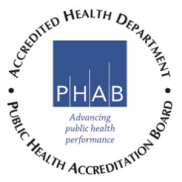What is chlamydia?
Chlamydia is a common STD that can infect both men and women. It can cause serious, permanent damage to a woman’s reproductive system, making it difficult or impossible for her to get pregnant later on. Chlamydia can also cause a potentially fatal ectopic pregnancy (pregnancy that occurs outside the womb).
Signs and Symptoms
- Most people have no symptoms
- Develop 7-21 days after exposure, or not at all
For women:
- Abnormal vaginal bleeding or discharge
- Burning or pain during urination
- Pain in the lower abdomen
- Anal discomfort
For men:
- Watery or thin white discharge from the penis
- Burning or pain during urination
- Anal discomfort
Transmission
Chlamydia is spread by:
- Vaginal sex
- Oral sex
- Anal sex
- Infected mother to newborn
Complications
If left untreated, chlamydia can:
- Spread to sex partners
- Lead to ectopic (tubal) pregnancy
- Lead to pelvic inflammatory disease
- Lead to infertility in men and women
- Make it easier to transmit or acquire HIV during sex
During pregnancy, chlamydia infection:
- It can be passed to a newborn during childbirth and cause serious eye infection or pneumonia
- This can lead to premature delivery and low birth weight
Prevention
- The surest way to avoid transmission of sexually transmitted diseases is to abstain from sexual contact or to be in a long-term, mutually monogamous relationship with a partner who has been tested and is known to be uninfected.
- Latex condoms, when used consistently and correctly, can reduce the risk of transmission only when the infected areas are covered or protected by the condom.
- Use a new latex condom properly for any sexual contact.
- Limit the number of sex partners.
- Notify sex partners immediately if infected.
- Make sure partners are tested and treated.
Testing and Treatment
- Get a test from a medical provider if the infection is suspected.
- Chlamydia can be cured using medication prescribed by a medical provider.
- Partners should be treated at the same time.
NOTE: A person can be re-infected after treatment.
Guidelines for treatment of persons who have or are at risk for sexually transmitted diseases.
Expedited Partner Therapy (EPT) is the practice of treating sex partners of persons with STDs in the absence of medical evaluation or prevention counseling. EPT is implemented through the delivery of or prescription for therapy by the case patient to their partners. Contact your local health department for more information.
Contact Information
STD Prevention
4815 W. Markham St., Slot 33
Little Rock, AR 72205
Phone: 501-661-2408
Fax: 501-661-2082
[email protected]


